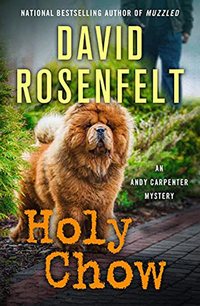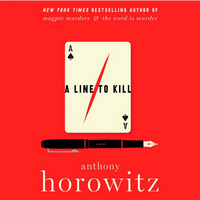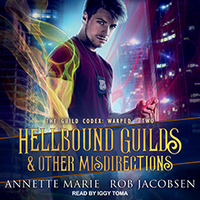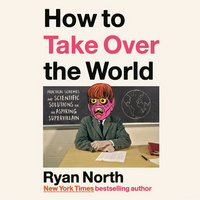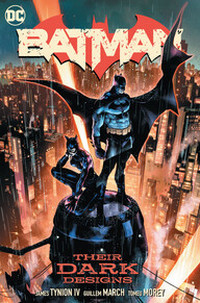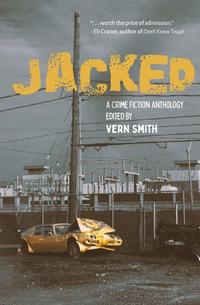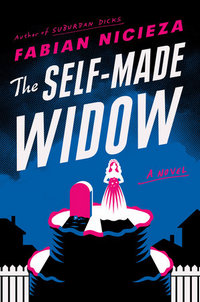 The Self-Made Widow
The Self-Made Widow
DETAILS: Series: Suburban Dicks, #2 Publisher: G.P. Putnam's Sons Publication Date: June 20, 2022 Format: Hardcover Length:388 pg. Read Date: July 7-11, 2022

[Det. Rossi] heard [Andi] sigh over the phone. He hated when she sighed. It was one of the few childish affectations she had, but he also knew that meant she was either frustrated, disappointed, or, worse, thinking something through.
Or even worse, he corrected himself, all three combined.
He suspected this was an “even worse” scenario.
What’s The Self-Made Widow About?
Andrea Stern’s social circle is shaken up when the husband of one of her friends dies suddenly. Many knew of his heart condition, so it wasn’t a total surprise, but it still wasn’t expected. Everyone rallies to support his wife and sons through this trying time.
During the funeral, however, Andi’s Spider-Sense starts tingling, and she starts to put some things that she’s noticed together—leading her to a daunting conclusion. Meanwhile, Kenny Lee, her collaborator in the exposure of the conspiracy and murder last year, gets an anonymous phone call saying that his death wasn’t due to natural causes, but that he was murdered by his wife.
Finding themselves interested in the same case again, they divvy up the avenues of investigating and get to work.
Kenny Lee
He was thirty years old and the only meaningful relationship he’d ever had in his life was with the fear of being in a meaningful relationship.
Kenny’s life since their last investigation has changed the most—he’s no longer a disreputable journalist, that case reestablished his reputation, got him some great publicity, and frequent TV exposure. He’s set to release his book about the murders/investigation in a few weeks and the Netflix documentary series will follow soon after that.
He is, for Kenny, back on top of the world—he’s bought a new car, is taking better care of himself, has a better attitude toward life, and maybe has a girlfriend. But it’s not enough—he’s restless, he realizes early in the novel that he needs to be chasing a story. Something makes him take another look at this death and he starts to ask questions.
He ends up using the team he has working with/for him on the documentary to help with the legwork, I really didn’t think that the novel’s cast needed to be bigger—but man, I had a lot of fun with this group. Most of them aren’t investigators, but (like with so many in this series) that’s part of their charm—and maybe the secret to their success.
I can’t help but wonder that the same impulses that led to his earlier professional downfall are being held back by his current wave of success. If that success slows or wanes, will that come back, leading him to a new round of scandal, possibly derailing Andie’s work? Or maybe making him a target for her?
Andrea Stern
Her insecurities kicked in. What was it about her that alienated people? She knew she was arrogant, sarcastic, and judgmental, but was that reason for people to be so wary around her?
Things haven’t been good for Andi and Jeff in the months since she uncovered the murder/had their fifth child. Long-simmering resentments and arguments have heated up. Andi hasn’t gone to work full-time or anything, but she has consulted with the police a little bit, and she’s clearly interested in doing more—if she can figure out how to do it. Jeff is not at all supportive of this, but Andi’s not deterred for a moment.
What does give her some pause is the effect that this particular investigation is having/going to have on her children and her friends. Yes, she’s (mostly) privately been judging the other moms, but they’re her social circle and have been for years. Can these relationships survive the secrets she will have to dig up and expose?
Thankfully, the friend she made last year, Sathwika* is encouraging, and supportive—and jumps into assisting Andi with both feet. Sathwika gets Andi more than anyone else seems to, and Andi may just have to rely on her alone after all this shakes out.
* This post is too long as is, so I won’t talk more about her now, but I need to spend a few paragraphs on Sathwika when I talk about the next novel.
That’s just what’s going on in the background—proving that Derek was killed is going to be hard enough. But then how is she going to prove her friend did it (assuming she is the one)? Is it all worth it? What will she gain and lose here?
Ruth Stern
…she also couldn’t accept someone getting away with murder.
Her first thought was: How does Mom do this?
But Ruth’s next thought, immediately coming after the first one, and bringing both excitement and trepidation in its wake, was: How do I do it better?
Like Anci in the Slim in Little Egypt books and Auri Vicram, one thing that almost always works for me is a daughter of a mystery protagonist taking it upon themselves to jump into mystery-solving (or being recruited to help). There’s a mixture of eagerness, naiveté, inventiveness, and immaturity that adds a freshness to a type of novel that can seem familiar before you even read it.
Ruth helped out her mom a little bit in the previous book, but she’s called upon to do more now. One of Molly’s sons is in her grade and they’re friendly with each other. Ruth uses this to get a better picture of life in the Goode household—both before and after Derek’s death.
It’s not the easiest thing for her to do—it feels like she’s betraying her friend. She knows the toll it takes on her mother’s relationships, and can understand that. But she continues to emulate her mother, driven by similar impulses. Ruth is one of the aspects of this series that works best, and I hope Nicieza continues to bring her in.
Molly Goode
Ohhh, Molly is possibly my favorite antagonist of the year. She’s the kind of woman that Bernadette Fox would feud with in the neighborhood or school. You can see her bullying mothers in a PTA meeting for not bringing the right kind of gluten and allergen-free goodies to a Bake Sale, or bringing the wrath of the HOA on someone who has let their grass get too long. She’s a meticulous planner, always gracious, with perfect children, and a (until he died) husband successful enough to enable her to live the kind of life she’s wanted.
In short, she’s the last person you’d suspect of a devious, premeditated murder. But then again…
What kind of person would you have to be to commit murder when one of the people closest to you solves murders as a hobby?
So, what did I think about The Self-Made Widow?
This was not a whodunit—both Kenny and Andi had a target in mind when they started looking into Derek’s death. It was a howdunit, a little bit of a whydunit—and, sure, a wasitdun? Then the biggest question—how could they prove any of it? I absolutely loved how they had to approach this one—I can’t think of a novel with an alibi like this one. This is a master class in how to put together a mystery novel for those readers who’ve read too many mystery novels.
My biggest (only?) complaint is that there’s a new Chief of Police in town, and we don’t spend nearly enough time with him—I hope that changes in the future, I liked him and think it’d be fun to see him lock horns with Andie more (and/or work alongside her).
For both Kenny and Andie, Suburban Dicks* was about them getting back to what they wanted/needed to be doing with their lives—Kenny needed to do some real reporting, and shake the scandal off; Andie needed to stop forcing herself into the mold of perfect suburban wife/mother, and do some profiling/investigating. This book focuses on some introspection for the two of them, what’s important to them? Are the choices they made last year—or this year—worth it to them? What made them this way? Between what we see about them in these books, we have a foundation for what’s to come (hopefully in many books).
* We get a nice dash of meta-humor about the title, incidentally.
It’d be easy to talk up the humor of the book—but it’s not a comedy. It’s comedically told—and there are some moments of slapstick—but at its heart, The Self-Made Widow is a murder mystery (with some other crimes thrown in for good measure). There’s a lot of darkness under the laughs, and readers should be prepared for that.
There’s a lot to chew on here when it comes to our protagonists as well as many of the supporting characters. Add in the murder and what they have to do to resolve things, and you’ve got yourself a great read. But you also get Nicieza’s laugh-out-loud humor, sharp observations, and strong narrative voice. If this novel had only one of these elements—character, plot, and writing—and it’d still be something I recommend. All three? Fuggedaboutit.

This post contains an affiliate link. If you purchase from it, I will get a small commission at no additional cost to you. As always, the opinions expressed are my own.
![]()



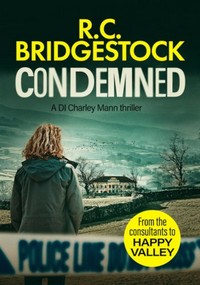



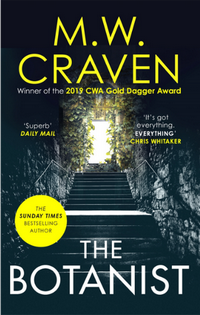
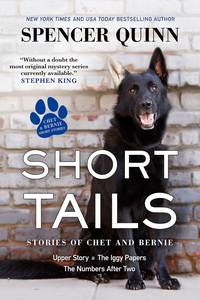

 Grab a book, any book.
Grab a book, any book.